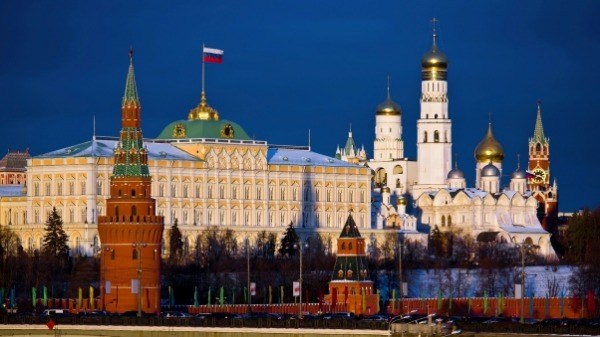Kremlin starts to prepare population for changes to Russian Constitution
Having carried out its unpopular pension reform, the Russian government is now starting to prepare the population for changes to the Constitution, finanz.ru reports.
Following the example set by the head of the Constitutional Court, State Duma Chairman Vyacheslav Volodin has proposed a reassessment of the relevancy of the Constitution’s provisions.
In its current form, the Constitution is “not dogma,” Volodin said in the Kremlin at a meeting with other MPs and President Vladimir Putin.
The document was adopted in 1990, “when the country was on the verge of collapse, when social obligations were not being met, when citizens’ faith in the government had been lost,” Volodin observed.
But now society and the country have changed. The time has come when “in principle, it is possible to answer questions related to the rules and provisions of the Constitution: How effective are they, to what extent have they not lost their substance today,” the chairman claimed.
“By no means” is it necessary “to make a stab at the fundamental provisions,” Volodin stressed, without clarifying which provisions he considers fundamental.
The State Duma chairman believes that the Constitutional Court should be put to work on the matter. Constitutional Court Chairman Valery Zorkin already has certain “targeted amendments” in mind.
In Zorkin’s opinion, it is necessary to correct the “liberal-individualistic approach to the understanding of the law,” and replace it with “the ideas of sobornist (unity at the expense of individuality), universal unity, and universal humanity,” delineated in the works of the Russian philosophers of the 19th century.
Other aspects of the Constitution which Zorkin considers “shortcomings” are its inclination towards executive authority and its “excess of local self-governance”, which enables regional authorities to oppose the public government of the Russian Federation.
“Attempts to impose on society perceptions of human dignity which are not its own can only be effective to an extremely limited extent,” Zorkin explained.
As part of its reforms, Russia may denounce the European Convention on Human Rights, a senior official told RIA Novosti in March.
The convention was ratified by Russia in 1998. It requires the prohibition of torture and slavery, and guarantees the right to a fair trial, fair elections, education, freedom of thought, religion and self-expression, and puts Russia under the jurisdiction of the European Court of Human Rights. However, Moscow claims that the court’s decisions are “politicized” and fail to take into account “the peculiarities of the Russian legal system,” the source explained.
The possibility of a Constitution reform has been considered for several years already, and is expected to begin in 2020, said Valery Solovey, head of public communication at the Moscow State Institute of International Relations.
